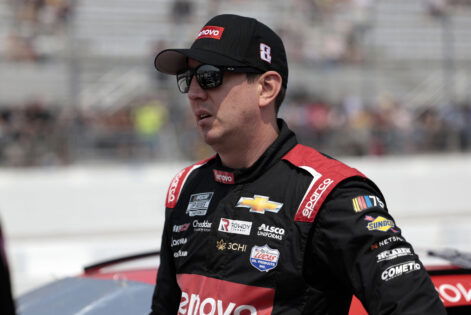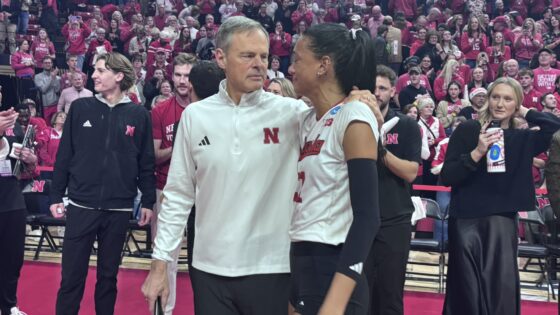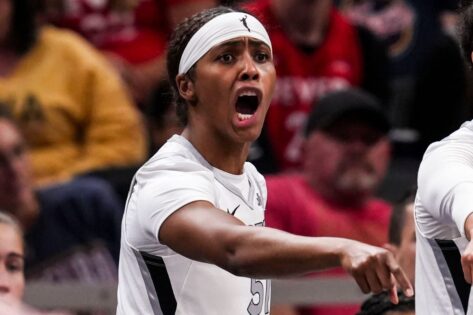NASCAR has always pushed boundaries to keep the sport fresh and fans hooked, tweaking formats and rules to amp up the excitement on track. From its roots in the late 1940s, when Bill France Sr. organized stock car racing into a structured series, the organization has evolved by listening to what draws crowds: high-stakes competition and star power that keep viewers tuning in week after week. One such term popping up in fan circles over the years is “bushwhacking,” which nods to those moments when top Cup Series drivers step into lower-tier events like the Xfinity or Truck Series, often turning heads with their experience against up-and-comers.
Back in 2004, NASCAR made a bold move with the introduction of the Chase for the Nextel Cup, resetting points mid-season to create playoff-style drama and pull in more eyes, a shift that transformed lackluster endings into must-watch battles. Today, as the sport eyes ways to blend tradition with modern appeal, questions linger about how to best showcase its biggest names without overshadowing the next generation. Could loosening those reins bring back some of that old-school buzz?
Under current guidelines, Cup veterans with more than three seasons under their belts are capped at just five starts in each of those series, and they’re barred from the playoffs to keep things balanced. It’s a setup designed to nurture new talent, yet it sparks debates about missing that extra thrill.
So NASCAR officials are now eyeing a potential tweak to let Cup Series drivers run more than their current five-race limit in the Xfinity and Truck Series, a move that could reignite the “buschwacking” era, where stars like Kyle Busch racked up wins across levels, earning the term from his dominance in the old Busch Series. This controversial review comes amid talks with new partners like The CW and O’Reilly Auto Parts, aiming to strike a better mix between developing young drivers and boosting entertainment value through more high-profile matchups.
NASCAR President Steve O’Donnell highlighted the discussions, saying, “We’re going to look at who can race in the series in the future as well and maybe make some changes down the road… So we’ve certainly had discussions with The CW and in the Truck Series as well, about, ‘Does that rule as it stands now make the most sense to continue as it is? Do we tweak it?” The timing feels right with the Xfinity sponsorship shift, as officials weigh if easing restrictions could help prospects like Ty Gibbs sharpen skills against vets, much like how Gibbs won 21% of his Xfinity starts before struggling in Cup without a victory yet.
Drivers themselves see value in more cross-series action, with Kyle Larson noting it exposes talent gaps. “In Xfinity, I do get motivated… I want to embarrass NASCAR a little bit because they just don’t let Cup guys run anymore, and the kids probably think they’re in a good spot, and they don’t know where the bar is at.” This push now stems from evolving series dynamics, where only a handful of Cup racers max out their allowed starts, like Ross Chastain this year, while the 2020 cut from seven to five races aimed to curb dominance but may have dulled ratings. Remember the mid-2000s? Cup regulars won most Xfinity events, frustrating regulars, but it also packed stands with star appeal; today’s review seeks that sweet spot without repeating past mismatches.
A Reddit post in the r/NASCAR community, sharing insights from NASCAR insider Adam Stern about possible rule shifts for more Cup involvement in lower series, quickly lit up with over 100 comments, showing how fans are split on bringing back elements of bushwhacking. As debates rage online, it’s clear this topic hits home for longtime followers.
Fan voices weigh in
“Kyle Busch is no longer a threat in all series every week, so it’s okay to lift the restrictions.” This taps into Busch’s storied past, where he notched a record 102 Xfinity victories, including 13 in a single 2010 season, often lapping the field in what defined Buschwhacking. Now at 40, his recent Cup struggles, winless in 2025 so far, suggest he’s less of a weekly juggernaut, easing fears of one-driver sweeps if limits rise. Think back to 2019: Busch swept all three series at Texas, but today’s form shifts the narrative, making fans feel safer about more access without total takeover.
Another reaction joked, “This paves the way for Brian Scott to come back and win all three championships while blindfolded.” Scott, who retired in 2016 after 79 Xfinity top 10s, wait, no, zero Cup wins in 44 starts, embodies the underdog era squeezed by Cup invaders. His 2014 Xfinity title chase ended short, often outpaced by vets; the sarcasm here highlights how relaxed rules might absurdly favor comebacks, recalling Scott’s solid but unspectacular runs with teams like Richard Childress Racing.
A thoughtful take emerged: “Keep the Cup guys out of the playoffs, but give them more than five races. I don’t think we need full-on bushwhacking, but it also probably helps lower-series drivers to develop when they have to race against Cup guys.” This echoes cases like Cole Custer, the 2023 Xfinity champ now 34th in Cup points, showing how facing elites preps transitions. In 2022, five Cup drivers claimed 23% of Xfinity wins, forcing regulars to adapt; the fans’ balanced view stems from pre-2020 days when seven-race caps allowed mentoring without playoff chaos.
One commenter predicted chaos. “It’s gonna be awesome when only 3 playoff drivers have wins.” This nods to the “win and you’re in” format since 2014, where a single victory locks playoff spots, potentially skewed if Cup stars snag more regular-season triumphs. Recall 2018, just 15 winners across the Cup, but lower series could see even fewer if vets like Larson, who raced in 1 and won 1 Xfinity race this year, multiply entries and dilute regular chances.
Finally, a pragmatic view. “That’s because truck and Xfinity teams are struggling to make money now.” Lower-tier squads rely on pay drivers or sponsors tied to big names, as seen with mid-2000s buschwacking when brands discounted for Cup talent. Today’s model favors rich rookies over vets like Joey Logano, who don’t bring funding; easing rules might attract sponsorships, helping teams amid rising costs post-2020 limits.
The post Fans Demand “Buschwacking” to Return as NASCAR Puts Controversial Rule Under Review appeared first on EssentiallySports.



